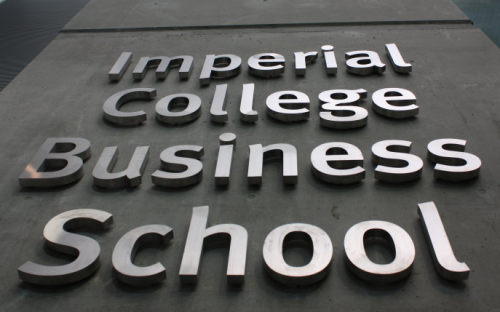Over the past year, the UK institution has launched the MSc in Business Analytics program and established the KPMG Center For Advanced Analytics with £20 million in funding from the professional services firm.
The push stems from the belief that data is changing the way businesses and organizations operate, and demand from students for data analytics courses, which form part of the MBA. The MSc is 12-months in length and costs £26,000.
The business school can draw on its host university’s renowned strengths in engineering and science. The Data Science Institute for example, launched in 2013, cultivates multidisciplinary collaborations between Imperial’s academic experts and between the business school.
Mark Thomas Kennedy, associate professor of strategy and organizational behaviour at Imperial, and director of the KPMG Centre for Business Analytics, alludes in this interview to the mass changes big data will bring to business.
How is big data changing the management of organizations?
The way big data is changing what’s going on in business it like life scientists having a microscope for the first time. It shows you how to think about where there is opportunity, but risk as well.
It’s not only changing business and organizations but also….It’s fundamentally changing how social science is done.
What skills do managers need for effective data management?
I think there will probably continue to be complementary skill-sets that need to be brought together. One example is people who have skills in collecting, cleaning, organizing, simplifying, and analyzing large data sets.
But it’s not just the traditional basket of statistics skills — which continues to be extremely important — that are needed… You need the ability to do the analytics but you also need someone to turn it into a question.
Despite the huge demand for data analytics, reports continue to cite a lack of adequate talent. Are we not producing the management talent business needs?
Yes and no. The MBA is not the kind of degree that tends to attract the undergraduate in computing doing a programming job.
[But] business schools like Imperial College are increasingly starting to offer two new things: one is more analytical content in an MBA; the other is degrees that are solely focused on business analytics.
Are business school graduates without analytics training at a disadvantage in the jobs market?
It depends on the job. In consulting or finance, probably they will be disadvantaged.
There is a possibility that there will be equilibrium between [people with] traditional MBA backgrounds and people with more technical skills. There will continue to be a need for people with the MBA who have some kind of technical background.
What challenges do companies face in developing a culture in which they can truly utilize big data?
The biggest problem right now is less about culture; it’s about getting people doing the analytics together with those who have a profit and loss responsibility. It’s that collaboration that’s most problematic right now.
In what industries do you expect big data to disrupt business?
We already see this happening enormously in marketing, as traditional advertising shifts to be more online and mobile orientated. We also see major disruptions rolling through travel and tourism. Frankly it is hard to image an industry that isn’t going to be fundamentally disrupted by [big data].
We’re living through the early days of a revolution that I think will be of the same magnitude of the industrial revolution.
Student Reviews
Imperial Business School
RECAPTHA :
bf
cd
21
91








